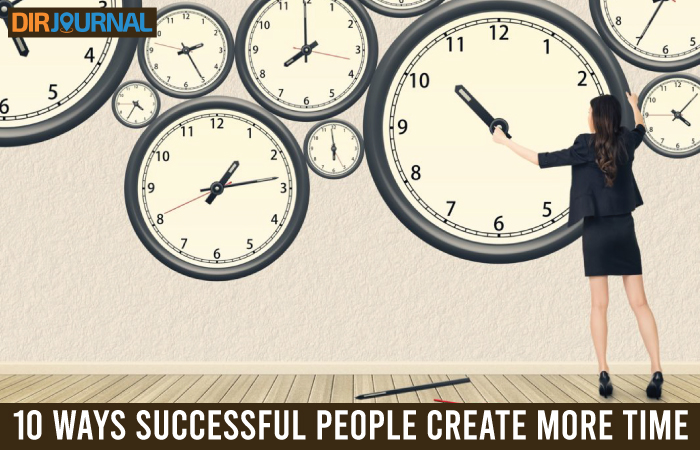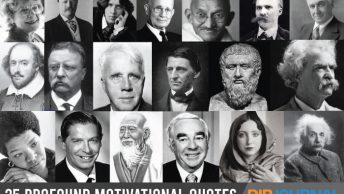Successful people know that investing time and effort wisely, developing productive habits, and using systems to increase efficiency, are the secrets to creating more time. When you learn to prioritize properly, and to use time effectively, you can create more space in your schedule for the things that matter most.
Here are ten tips to maximize your effectiveness and make every moment count, including top time management tips from some of the most successful people on the planet.
1. Get an Early Start
It is easier to focus on important tasks in the early hours of the morning, when there are fewer distractions and interruptions. While everyone else is asleep, your phone is less likely to ring, your inbox will be emptier, and you will have peace and quiet to get on with what you need to do. The same is true of the late-night hours, when most people have finished work for the day.
Use these special pockets of time for tasks where you need to focus, so you can double your productivity and create more time. US President Barack Obama is known for working late at night to get a head-start on business for the coming day.
2. Energize Yourself
Many successful people swear by having an early-morning workout or meditation session, to help them stay productive later on. Energizing yourself for the day ahead means you can work more quickly and focus better. Michelle Obama is an example of an early riser who hits the gym before turning attention to her daily responsibilities.
Eat a good breakfast every morning to keep your blood sugar stable. Protein can give you the energy you need to stay productive without flagging or losing concentration. Good fats help your brain to work better, and slow-release carbs can sustain your strength. America’s First Lady opts for scrambled eggs, turkey sausage and grapefruit to start her day.
3. Speed Up by Using Systems
Creating systems and templates for recurring tasks can save you lots of time over weeks, months and years. Invest a little time in creating a system to save yourself hours on an ongoing basis.
Your system can be as small as setting up an email signature to attach to every message, or as large as automating an entire business. Create templates and macros for documents you are likely to produce more than once. Use speed dial for numbers you call often. Many minutes and hours can be freed up by setting up useful short-cuts such as these.
4. Make Time by Multi-tasking
Doing too many things at once can be problematic, because you tend to lose focus on your tasks; but there are some types of multi-tasking that create more time without negatively impacting on the quality of your work.
Check your emails or read a book while on the train. Listen to audio programs in the car. Take your business cards to social gatherings. Schedule meetings over dinner, rather than during the workday. Hold a group meeting, rather than briefing people separately, and use Skype rather than traveling across town.
5. Prioritize Properly
People can wrongly believe they are being productive just because they are making phone calls or attending meetings, according to Stephen Covey. But many tasks are unimportant in the grand scheme of things, the author of “7 Habits of Highly Effective People” says. To be successful and create more time, focus on preparation and personal development above being busy, he advises.
Structure your day to account for both meeting deadlines and improving yourself. Say “no” to things that don’t serve you. Create a daily schedule to keep yourself on track, leaving an extra hour for emergencies if they should arise. If no crises emerge, you’ve just created another free hour.
6. Play the Long Game
Look at what you need to do to save more time in the future — and do it now. Don’t put off getting an assistant if that would save you time on an ongoing basis. When deciding what needs to be done today, look at the long game, rather than your short-term aims.
Getting an assistant, a more efficient computer, or a new app, are all ways that you can continue saving time in weeks and months to come, so make these things a priority.
7. Be Smart about Your Smartphone
You can lose many hours by constantly checking your Smartphone. It may seem like you’re only checking it for short periods of time, but they all add up, making you wonder where your day went. Virgin founder Richard Branson warns against being chained to your Smartphone, which he says is bad for concentration and decision-making.
Set aside chunks of time to check messages, emails, and social media — and focus on just doing that for a set period. When you’re not constantly reaching into your pocket, you’ll find it much easier to focus on the task at hand, and will save yourself a lot of time.
8. Consider the Bigger Picture
Many people get bogged down by ‘busyness’ without seeing that what they’re doing isn’t effective. Failing to check if what you’re doing works can lead to dead ends and wasted time.
Regularly set aside time to consider the bigger picture, and evaluate what is proving helpful when trying to reach your goals. Create more time by letting go of the things that don’t sit well with your overall aims, and stop doing things that do not enhance your life.
9. Only Learn Skills That Won’t Be Wasted
If you’re never going to need to do it again, ask or pay someone else to do it. Learning new skills can be beneficial, but if you’re not going to be using them regularly, it’s a waste of your time.
Why learn how to create your own website, if that’s not your field of expertise, and never will be? It would take you much longer than asking an expert to do it, and the skills that you painstakingly learn will go to waste. Outsource tasks that will not teach you anything advantageous, and save your time for learning things you can use again.
10. Delegate to Superstars
Knowing when to delegate to others is useful, but getting others to help you can cause additional problems. Unskilled people may need micro-managing, training, reassuring or correcting — and that just takes up more of your time.
The late Steve Jobs said that to be at the top of your game, you need to hire superstars. Get someone else as passionate about your project as you are, someone who can take a task and run with it. Using highly-skilled people with expertise and passion, can not only free up your time, but will ensure your tasks are completed excellently, too.














Hey Beth. Your Article is amazing.Keep up the good work. Now I will follow everything you describe in this article.
Thank you for your kind words – have a wonderful (and long) weekend!
Great list! I really liked #5. We need to be able to prioritize our specific activities so that we aren’t wasting time on the unimportant things and that we are aligned with what makes us the happiest. More time doing what you love will always lead to greater happiness!
Thanks again for sharing Beth!
Thank you Kyle. Time is a precious thing – so we should definitely spend a lot of it doing things we love.
Hey Beth,
Great post and some of it resonated with me. I am trying to cut out the crap in my day. And i really love only learn skills that wont we wasted. Speed up by using systems. That one for me is about looking at automation and I have been putting it off but I think it is time to start investigating at least.
Thanks for this post because tonight I am doing a planning session and I will take this post in with me.
Rachel.
Thanks Rachel, Have a great and productive day 🙂